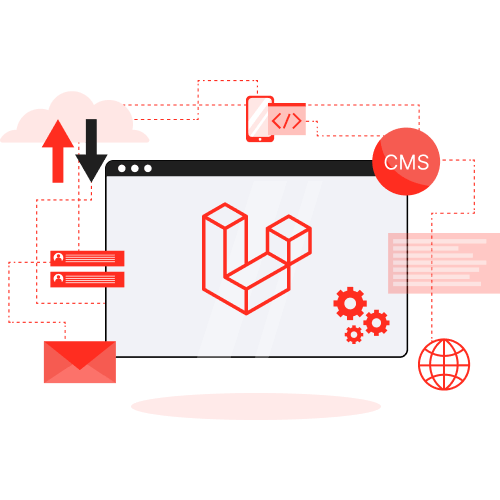Table of Contents
ToggleIntroduction to E-commerce in Qatar
The e-commerce landscape in Qatar has evolved significantly over the past few years, reflecting broader global trends while catering to the unique preferences of the local market. With economic diversification strategies and increased internet penetration, Qatar has witnessed a remarkable shift in consumer behavior, focusing more on online shopping rather than traditional brick-and-mortar stores. This seismic change in shopping habits has created immense opportunities for businesses to tap into a digital marketplace that is rapidly expanding.
Several factors have contributed to the growth of e-commerce in Qatar. Firstly, changing consumer behaviors, driven by younger and tech-savvy populations, have led to a greater acceptance of online transactions. These consumers seek convenience, variety, and competitive pricing, all of which e-commerce platforms are well equipped to provide. Coupled with these shifts is the technological advancement in mobile payment solutions and user-friendly online interfaces which facilitate smooth transactions, making shopping online a hassle-free experience.
Moreover, the Qatari government is actively supporting digital commerce through a range of initiatives aimed at improving the digital infrastructure and fostering a competitive online environment. Enhanced logistic networks, investment in technology hubs, and regulatory frameworks designed to protect consumers are all instrumental in bolstering the e-commerce sector. Such supportive measures not only enhance the operational capabilities of online businesses but also instill consumer confidence in digital shopping.
In light of these developments, businesses looking to thrive in this burgeoning digital landscape must acknowledge the critical role of strategic website design. A well-crafted e-commerce platform can significantly influence user experience, conversion rates, and overall business growth. Understanding the dynamics of e-commerce in Qatar is essential for harnessing the full potential of this evolving market.
Importance of Professional E-commerce Website Design
In today’s digital landscape, the significance of high-quality e-commerce website design cannot be overstated. A professionally designed e-commerce site plays an essential role in determining the overall success of online businesses. One of the most crucial aspects of e-commerce website design is user experience (UX). An intuitive and user-friendly interface facilitates seamless navigation, allowing customers to find products effortlessly. When users encounter a straightforward and enjoyable shopping process, they are more likely to make purchases and return for future transactions.
In addition to UX, the visual appeal of an e-commerce website greatly impacts customer engagement. Aesthetically pleasing designs enhance brand perception, as they convey professionalism and reliability. From color schemes to typography, every design choice contributes to a cohesive visual identity that can attract potential customers. Incorporating high-quality images and compelling visuals can significantly influence a user’s decision-making process, leading to increased sales and customer loyalty.
Functionality is another critical element of effective e-commerce design. Features such as search functionality, easy-to-use shopping carts, and secure payment gateways must be prioritized to ensure a streamlined shopping experience. A functional website empowers customers to make purchases with confidence, knowing that their personal information is protected. Furthermore, implementing robust backend systems can optimize inventory management and streamline overall operations, making it easier for businesses to scale.
Lastly, mobile responsiveness has become an indispensable aspect of e-commerce website design as more consumers are using smartphones for online shopping. A mobile-optimized e-commerce site guarantees that users have a smooth and consistent experience across all devices. This adaptability not only improves user satisfaction but also enhances search engine rankings, ultimately driving more traffic to the website. Investing in professional e-commerce website design is, therefore, a vital step toward achieving long-term success in the competitive online marketplace.
Key Features of a Successful E-commerce Website
Creating a successful e-commerce website requires integrating several essential features that enhance user experience and drive conversions. One of the most critical aspects is intuitive navigation. A well-structured website enables visitors to find products easily, leading to increased engagement and higher sales. Clear categories, filters, and a search function play a pivotal role in guiding users through the product offerings.
Another integral feature is the implementation of secure payment gateways. Customers prioritize their safety when entering sensitive information. Therefore, a website must utilize robust encryption methods and reputable payment processors to assure users that their transaction data is protected. Providing a variety of payment options, including credit cards, digital wallets, and installment plans, can further enhance customer trust and convenience.
Effective product catalog management also significantly contributes to an e-commerce platform’s success. This entails not only displaying high-quality images and detailed descriptions but also maintaining accurate inventory levels. Customers appreciate a seamless shopping experience wherein they can easily access product details, stock availability, and pricing information. Regular updates and organized categorization of products help maintain user interest and foster repeat visits.
Customer reviews represent another crucial feature for an effective e-commerce website. They provide social proof, thereby influencing potential buyers’ decisions. Ensuring that customers can leave feedback and that this feedback is showcased prominently encourages transparency and builds trust in the brand. Furthermore, an efficient way of managing and responding to reviews can enhance customer satisfaction and loyalty.
Lastly, responsive customer support functionalities are vital for addressing any inquiries or issues that arise during the shopping experience. Implementing live chat options, extensive FAQs, and responsive email support can significantly improve customer relations, which is a decisive factor in retaining clients and fostering brand loyalty. By integrating these features, e-commerce platforms can significantly improve their operational efficiency and user engagement.
Choosing the Right E-commerce Website Design Company in Qatar
When seeking to enhance your online business through an e-commerce platform in Qatar, selecting the appropriate website design company is paramount. With a myriad of firms available, potential clients must conduct a comprehensive evaluation to ensure alignment with their specific requirements and goals. One of the most effective ways to start this process is by reviewing the portfolios of various companies. A well-crafted portfolio not only highlights a firm’s design capabilities but also showcases their creativity and versatility. Look for examples of previous e-commerce projects, paying close attention to user experience, aesthetic appeal, and functionality.
Client testimonials serve as vital indicators of a company’s reliability and performance. Investigating what past clients have to say can offer insights into the company’s professionalism, communication skills, and ability to meet deadlines. Platforms like social media and third-party review sites can provide an unbiased perspective, which can assist in making an informed decision. Furthermore, it is essential to ascertain the industry experience of the design company. A firm with a proven track record in e-commerce, particularly within your sector, will possess a better understanding of the unique challenges and opportunities your business faces.
Another important consideration is the range of services offered by the design company. A comprehensive e-commerce solution often includes website design, development, digital marketing, and ongoing support. This all-in-one approach can lead to a more cohesive strategy for your online presence. Additionally, evaluating pricing structures is crucial; the company should provide transparent pricing with detailed breakdowns. Finally, pay attention to the post-launch support offered. Ensuring that adequate assistance is available post-launch means you can address any technical issues promptly, ensuring your business continues to operate smoothly.
Top E-commerce Website Design Companies in Qatar
In the rapidly evolving digital landscape of Qatar, numerous e-commerce website design companies have emerged, each offering unique services and specialties to cater to the diverse needs of businesses looking to enhance their online presence. Below is a curated list of some leading firms in this sector.
First, Qatar Web Design stands out for its commitment to creating user-friendly interfaces and responsive websites. They specialize in custom website development that appeals to various industries, including retail and services. Their portfolio features notable projects for local businesses that reflect their ability to adapt to client requirements, ensuring a seamless user experience.
Another prominent player is Digital Marketing Qatar, which integrates digital marketing strategies into their design process. This firm not only focuses on aesthetics but also emphasizes functionality and conversion optimization. Their unique selling proposition lies in effectively blending SEO practices with design, making them a top choice for clients seeking both visibility and attractive designs.
Qanect offers a more holistic approach, providing branding, content creation, and e-commerce website design. Qanect is known for its collaborative approach, working closely with clients to develop tailored solutions. Their clients include notable regional brands that have leveraged their expertise to build robust online storefronts.
Additionally, PureTech has established a niche by focusing on scalable e-commerce solutions. Their platforms are built to accommodate growth, catering to businesses intending to expand their online operations. Their dedication to clear communication and transparency has garnered them a loyal client base in Qatar.
These companies, among others, are leading the charge in transforming how businesses engage with customers online. Their commitment to quality, innovation, and client satisfaction positions them as vital partners in the e-commerce sector in Qatar.
Cost Considerations for E-commerce Website Design
The financial aspect of commissioning an e-commerce website design is an essential consideration for businesses aiming to boost their online presence in today’s competitive market. The costs associated with developing an e-commerce site can vary significantly based on various factors, including the complexity of the design, the inclusion of custom features, and the experience level of the design vendor. Understanding these elements is crucial for businesses to effectively budget their projects and ensure a satisfactory return on investment.
Firstly, the complexity of the website plays a vital role in determining the overall costs. A simple e-commerce website might have a lower price point, often ranging from a few thousand to several thousand dollars, whereas a more intricate site with advanced functionality may require a much larger investment. Features such as sophisticated payment gateways, inventory management systems, and user-friendly interfaces add to the complexity and therefore the cost. Consequently, businesses should clearly outline their requirements and negotiate with vendors to establish a matching price point.
In addition to the complexity, custom features can further drive the expenses of an e-commerce website design. Customization may be necessary for businesses to stand out in their niche, yet it typically adds to the development costs. Not only should businesses consider the initial design and development expenses, but they must also assess ongoing maintenance and support costs, as these will affect the overall budget in the long run.
Moreover, the choice of vendor can significantly influence pricing. More experienced companies may charge higher rates due to their extensive portfolios and proven track records. However, investing in a reputable vendor often comes with the benefit of quality work and a robust support system, enriching the value offered to businesses launching their e-commerce sites. By carefully evaluating these financial considerations and potential costs, companies can effectively position their e-commerce ventures for success.
Trends in E-commerce Website Design
E-commerce website design has evolved significantly over recent years, driven by advancements in technology and changing consumer expectations. One of the prevailing trends is the integration of artificial intelligence (AI) in website design. AI enhances user experience by delivering personalized product recommendations tailored to individual customer preferences. This level of customization not only boosts conversion rates but also fosters customer loyalty, as users feel understood and valued by the brand.
In addition to AI, another critical trend is the emphasis on personalization throughout the shopping journey. E-commerce platforms are increasingly utilizing data analytics to create tailored user experiences, from customized landing pages to personalized email campaigns. By analyzing user behavior and purchase history, designers can craft unique experiences that cater to specific needs, making visitors more likely to complete their purchases.
Furthermore, voice search optimization is gaining traction as consumers adopt voice-enabled devices for shopping. As a result, e-commerce website designers are now focusing on creating voice-search-friendly content and structures that allow for easy navigation via voice commands. This trend is crucial, as studies indicate that a growing number of users are opting for voice searches, highlighting an essential shift in search behavior that designers must address.
Emerging technologies also play a pivotal role in enhancing user engagement on e-commerce websites. For example, augmented reality (AR) applications enable customers to visualize products in their own environment before making a purchase, enhancing their confidence in the buying decision. Similarly, chatbots equipped with advanced natural language processing provide real-time support, assisting users with inquiries and facilitating smoother transactions. As these technologies continue to develop, e-commerce website design will prioritize incorporating such features to improve operational efficiency and meet the demands of a tech-savvy market, ensuring that businesses remain competitive in a rapidly changing landscape.
Case Studies of Successful E-commerce Websites in Qatar
Qatar’s e-commerce landscape is evolving rapidly, with several companies establishing a robust online presence through professional design services. Examining successful case studies highlights the critical role of design in overcoming challenges and achieving significant growth.
One notable example is a leading fashion retail brand that faced difficulties in attracting and retaining customers on their website. The initial design was cluttered, leading to poor user experience and high bounce rates. To address these challenges, the company partnered with a renowned e-commerce website design firm in Qatar, which conducted a comprehensive analysis of user behavior. They implemented a clean, minimalist design that emphasized product visuals and streamlined navigation, ensuring a seamless shopping experience. The redesign resulted in a 40% increase in site engagement and a 30% rise in conversions within six months.
Another successful case study involves a prominent electronics retailer. This company struggled with limited online visibility and low sales figures due to a non-responsive website. Recognizing that a significant portion of their target market used mobile devices, they engaged a professional design agency that specialized in responsive design. The redesign focused on creating a mobile-first experience tailored to the needs of on-the-go consumers. By optimizing mobile usability and loading speeds, the retailer saw a remarkable 50% boost in mobile traffic and a 25% increase in overall sales following the launch of the new design.
In addition, a local handmade crafts store transitioned to e-commerce to expand its market reach. Initially, the absence of an online platform limited its sales potential. With the help of an e-commerce design firm, the store developed an appealing website that showcased the unique craftsmanship of its products. The e-commerce site also integrated a robust shopping cart system, enabling smooth transactions. As a result, the company reported a 70% rise in sales within just three months.
These case studies demonstrate that effective e-commerce website design plays a vital role in addressing common industry challenges. By leveraging professional design services, Qatar-based businesses have not only enhanced user engagement but also significantly improved their overall sales and customer satisfaction.
Conclusion: Elevating Your E-commerce Vision
In the competitive landscape of online retail, the significance of a well-designed e-commerce website cannot be overstated. The companies highlighted in this blog post represent some of the leading e-commerce website design firms in Qatar, each known for their unique approach to creating visually appealing, user-friendly, and functionally robust online platforms. By investing in professional services, businesses can ensure their websites are not only attractive but also optimized for performance and conversion, ultimately leading to enhanced sales and customer engagement.
Throughout our discussion, several key points emerged regarding the essential elements of effective e-commerce design. These include the importance of mobile responsiveness, intuitive navigation, and seamless payment integration, all of which serve to improve user experience and foster customer loyalty. Moreover, the selection of the right design partner can significantly influence the overall success of an e-commerce venture. Each of the companies profiled has a proven track record of delivering tailored solutions that align with specific business needs and goals.
As you contemplate the next steps for your online business, consider taking actionable measures based on the insights provided. Whether you are launching a new e-commerce site or revamping an existing one, collaborating with a professional design company can serve as a critical investment in your brand’s digital future. With their expertise, you can enhance your online presence and ensure that your e-commerce platform stands out in an increasingly crowded market. By focusing on quality design and user experience, you are setting the stage for lasting success and growth.






